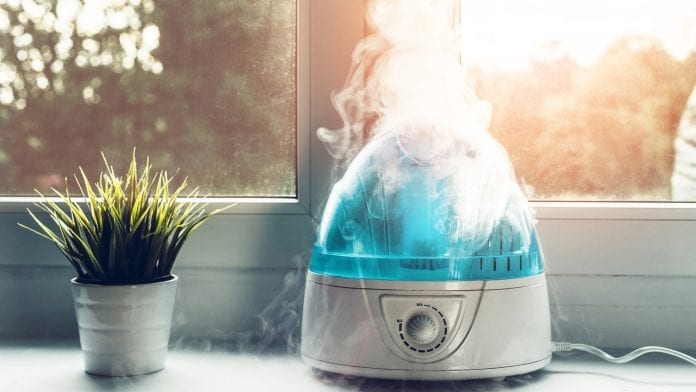Winter is an exciting time of year. The first snow has fallen, the plans for Christmas holidays are blooming, and an air of pleasantness—an expectation of the memories to come not only during winter but during spring and the summer months—improves the mood and outlook of all. However, winter also brings with it some unforeseen stress and difficulties. The low temperatures, frost, and dry air of the winter months can take a toll on an individual’s health and well-being.
It can be challenging to find the energy and time to experience the season at its best. In practical terms, this means that stress will probably be high, and sleep will probably be less-than-stellar in winter. But busy winter bees don’t need to worry about compromising their energy levels as a result of low-quality sleep; there are several simple, straightforward ways that stress can be reduced, and rest can be rendered more rewarding.
To help everyone sleep and feel their best during the year’s most refreshing season, let’s take a look at some useful tips!
Exercise Early

Burning calories during winter are as comfortable as getting outside and walking, skiing, skating, or playing a sport, and the benefit of a cool breeze and encouraging winter beauty while one is doing so cannot be understated. Furthermore, exercise can help one to become more physically fit and reduce stress levels.
With that said, not exercising does have some potential drawbacks. Sleep can become less satisfying, and restlessness can become more prevalent, for instance. Exercising for at least thirty minutes per day, five days per week is advisable. Additionally, it should be mentioned that exercising too late in the day can negatively affect sleep cycles and increase stress (you can learn more about it here). The body emits all sorts of chemicals during exercise, including adrenaline and dopamine, both of which have energy-boosting properties.
With this in mind, to assure that stress as a result of less-than-stellar sleep doesn’t become an issue, it’s recommended that exercise be taken as early in the day as possible and that it not be taken within three or so hours from bedtime.
Maintain a Sustainable Work-Life Balance

During the spring, the enticing sun and temperatures of the outdoors render additional work and unexpected professional requirements exponentially more troublesome. These requirements aren’t about staying in the workplace; instead, they’re about not being able to get outside.
During the winter, however, over time, extra tasks, and unexpected requests at work are nothing more than minor inconveniences, most of the time. After all, there’s nothing particularly nice waiting outside, right?
However, a positive and sustainable work-life balance is an essential part of stress-free living regardless of the time of year. In short, during the winter, work and life must be balanced. If there’s too much in the docket at a given time, some steps should be taken—consult a supervisor, put in for a personal day, etc.—to make the work-at-hand less frustrating and more pleasant.
Doing so will improve all facets of life, including stress levels and sleep. This means more positivity and energy will be available to explore the most appealing elements of winter!
Purchase the Right Kind of Humidifier

Dry, brittle air isn’t good for anything, including stress levels, sleep, and one’s overall quality of life. During winter, much of the humidity is locked away in the ground and the atmosphere, and it can be somewhat unpleasant to breathe the resulting air. Moreover, allergy suffers are undoubtedly aware of the fact that sniffles, runny noses, sneezing, and coughing usually initiate with the growth of the season. Between these factors—dry air and allergies—stress levels can quickly increase, and quality sleep can easily decrease.
To the benefit of everyone, there is a great fix available: a humidifier.
Not just a humidifier, of course, but the right kind of humidifier. Humidifier professionals and online guides can help interested individuals to determine which humidifier is best for their particular needs and desires. Still, many units are specially designed to alleviate allergenic symptoms and improve the humidity of the air. These units are optimal for use during spring and will most help one to reduce stress levels and sleep well.
It should also be emphasized that humidifiers are affordable, easy to use, and reliable. Purchasing them is a breeze, and they’re available for surprisingly minimal prices—especially when the quality of the received product is considered. Then, distilled water is poured into the machine (distilled water costs is merely devoid of nutrients, which prevents the growth of bacteria), it’s plugged in, the desired humidity level is set (during winter, fifty percent relative humidity is recommended for the average home), and the air is made more beneficial to all nearby individuals.
And as the air becomes more agreeable, stress will melt away, and sleep will be rendered a great and energy-boosting respite from the stresses of the day.
These tips are sure to help reduce stress levels, increase sleeping quality, and make winter as excellent as possible. Remember that these tips, useful as they are during winter, can be applied in one form or another to all seasons of the year; avoiding working out close to bedtime is smart, as is establishing a sustainable work-life balance. Lastly, although the right humidifier varies based upon the season, a suitable model can be picked-out for each phase of the year.
Thanks for reading, and here’s to experiencing spring at its best!









